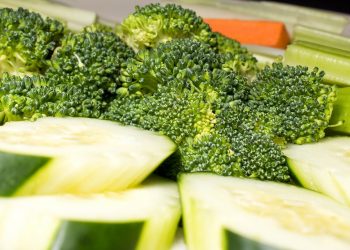Five Reasons Spinach Boosts Penis Blood Flow Naturally
Midday slump meets your favorite mug. You grab that steaming cup of coffee, but there’s something else lingering on your mind—your sexual health. If you’ve ever found yourself looking for natural ways to enhance blood flow, especially where it counts, you might want to consider incorporating spinach into your diet. This leafy green isn’t just a staple on salad plates; it holds some remarkable benefits for blood circulation, particularly in the penis.
Spinach has been celebrated for centuries for its health benefits, but its potential impact on blood flow is a topic worth diving into. Here are five compelling reasons why spinach might just be the leafy green your sexual health has been missing.
Contents
1. Rich in Nitrates for Enhanced Circulation
Spinach is an excellent source of dietary nitrates, which the body converts into nitric oxide. Nitric oxide is a key player in widening blood vessels, a process known as vasodilation. This dilation facilitates increased blood flow, which is particularly important for maintaining erections.
A study published in the American Journal of Clinical Nutrition demonstrated that incorporating foods rich in nitrates could lead to significant improvements in blood flow and decreased blood pressure ([1]). While the study highlighted various vegetables, spinach stood out because it is one of the most concentrated sources of nitrates.
Limitations: However, it’s crucial to note that individual responses can vary based on overall diet and health. Spinach alone will not work miracles; combining it with other lifestyle changes such as exercise and hydration is vital for optimal results.
2. Packed with Antioxidants and Anti-Inflammatory Properties
Spinach is a powerhouse of antioxidants, including vitamin C, beta carotene, and flavonoids. These compounds help combat oxidative stress and inflammation throughout the body, which can adversely affect blood flow.
A 2019 study in the Journal of Nutritional Biochemistry revealed that antioxidants play a significant role in improving endothelial function, the tissue lining blood vessels ([2]). When your blood vessels are healthy, they can perform better at supplying blood to various parts of the body, including the penis.
Limitations: While antioxidants are critical for health, depending solely on spinach without a comprehensive diet of fruits, vegetables, and whole grains may limit potential benefits.
3. A Source of Magnesium
Magnesium is another vital nutrient found in spinach that’s linked to improved blood flow. This mineral helps relax blood vessels, which can aid in maintaining healthy blood circulation.
According to research from the Biological Trace Element Research Journal, magnesium deficiency can lead to cardiovascular issues, including restricted blood flow and increased blood pressure ([3]). By ensuring you have adequate magnesium levels through foods like spinach, you’re supporting overall vascular health.
Limitations: Always consult a healthcare provider before making significant changes to your diet or supplement regimen, especially if you have underlying health conditions or are on medications.
4. Low-Calorie, High Nutrient Density
One of the most appealing aspects of spinach is that it offers a multitude of vitamins and minerals while maintaining a low calorie count. In the context of sexual health, keeping a balanced diet can significantly contribute to blood flow and overall stamina.
Research suggests that being overweight or obese can negatively affect blood circulation, sometimes resulting in erectile dysfunction. By adding nutrient-dense foods like spinach into your meals, you might find it easier to maintain or achieve a healthy weight. A study in Nutrition Reviews indicated that those who consume more vegetables, including leafy greens, tend to have better cardiovascular health and lower risks of erectile dysfunction ([4]).
Limitations: While spinach aids in weight management, it should be part of a broader approach that includes regular physical activity and balance in dietary choices.
5. Hormonal Regulation
Spinach also contains compounds that may aid in hormone regulation, particularly testosterone, which can influence libido and sexual function. Some studies have suggested that nutrients found in spinach may support testosterone levels indirectly by improving circulation and reducing inflammation.
For instance, a recent article in the Journal of Endocrinology highlighted the importance of a diet rich in specific nutrients, including zinc and vitamin D, which are found in spinach. These nutrients are crucial for testosterone production ([5]).
Limitations: Hormonal health can be complex, influenced by many factors such as stress levels, sleep quality, and overall health. Thus, while spinach can contribute, it shouldn’t be viewed as a standalone solution for hormone-related issues.
FAQs
1. How much spinach should I eat for these benefits?
Aiming for at least one serving of spinach several times a week can be a good start. This could be in the form of salads, smoothies, or cooked dishes.
2. Are there any side effects to eating spinach regularly?
While generally safe for most people, spinach does contain oxalates, which can lead to kidney stone formation in susceptible individuals. Moderation is key.
3. Can spinach alone solve erectile dysfunction issues?
While spinach can support blood flow and overall health, it is not a cure-all. If you’re experiencing erectile dysfunction, consulting a healthcare provider is vital for an accurate diagnosis and comprehensive treatment plan.
4. What are some other foods that promote blood flow naturally?
Foods rich in nitrates like beets, garlic, and citrus fruits, as well as healthy fats found in fish and nuts, can also support blood circulation.
Conclusion
Incorporating spinach into your diet may offer several benefits when it comes to enhancing blood flow, particularly to the penis. From its nitrate content and antioxidants to its magnesium levels and hormonal support, spinach is a versatile superfood that can harmonize with your overall health strategy. However, remember that no single food can serve as a magic solution; a balanced diet, physical activity, and appropriate medical consultation are necessary for optimal sexual health. So, as you navigate your health journey, consider adding a little more green to your plate.
References
- Wylie, L., et al. (2013). The effect of dietary nitrate on blood pressure and vascular health: A review. American Journal of Clinical Nutrition. URL: https://academic.oup.com/ajcn/article/97/4/817/4576887
- Fraga, C. G., et al. (2019). Antioxidants and endothelial function: A review. Journal of Nutritional Biochemistry. URL: https://www.sciencedirect.com/science/article/pii/S0955286318301895
- Durlach, J., et al. (2006). Magnesium and the cardiovascular system: Pharmacological and clinical implications. Biological Trace Element Research. URL: https://link.springer.com/article/10.1385/BTER:109:1-3:99
- Tiwari, U., et al. (2018). Diet and Male Sexual Health: Impact of Nutrition on Sexual Function. Nutrition Reviews. URL: https://academic.oup.com/nutritionreviews/article/76/7/663/5125399
- Zitzmann, M., et al. (2018). The role of hormones in male sexual health. Journal of Endocrinology. URL: https://joe.bioscientifica.com/view/journals/joe/236/5/JOE-18-0425.xml
Get Your FREE Natural Health Guide!
Subscribe now and receive our exclusive ebook packed with natural health tips, practical wellness advice, and easy lifestyle changes — delivered straight to your inbox.
















